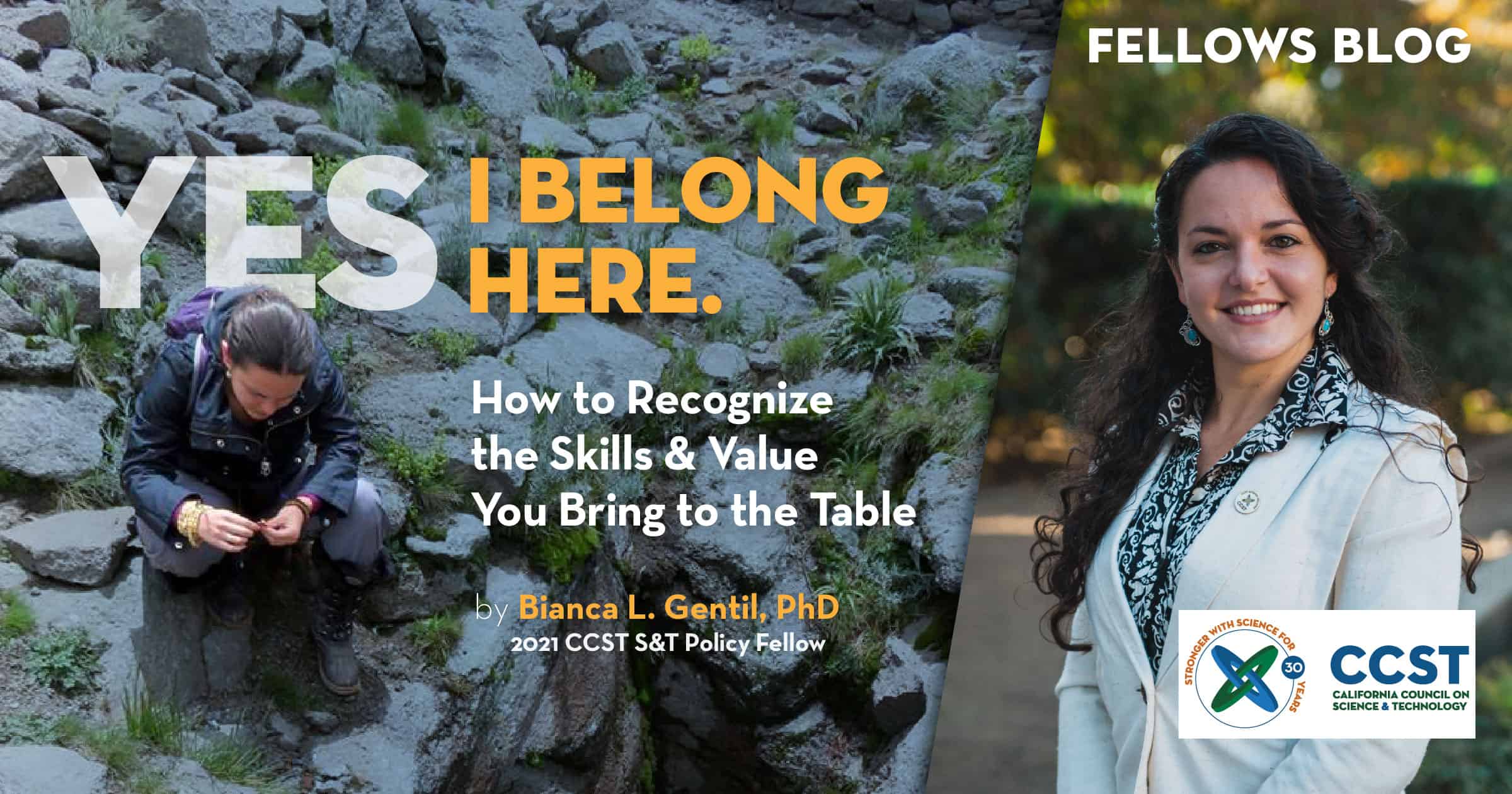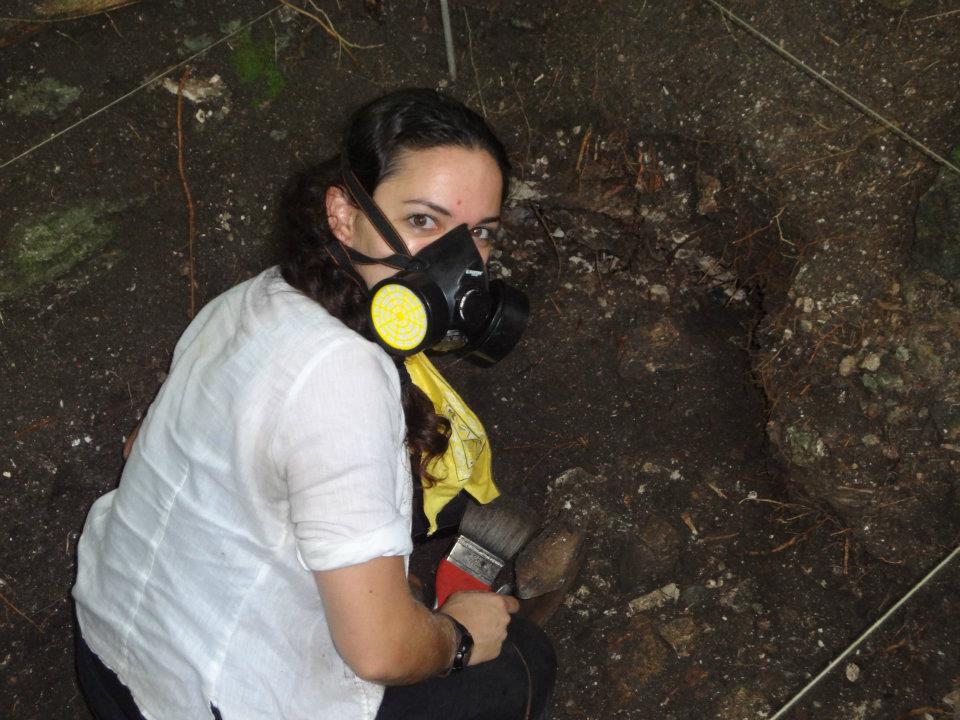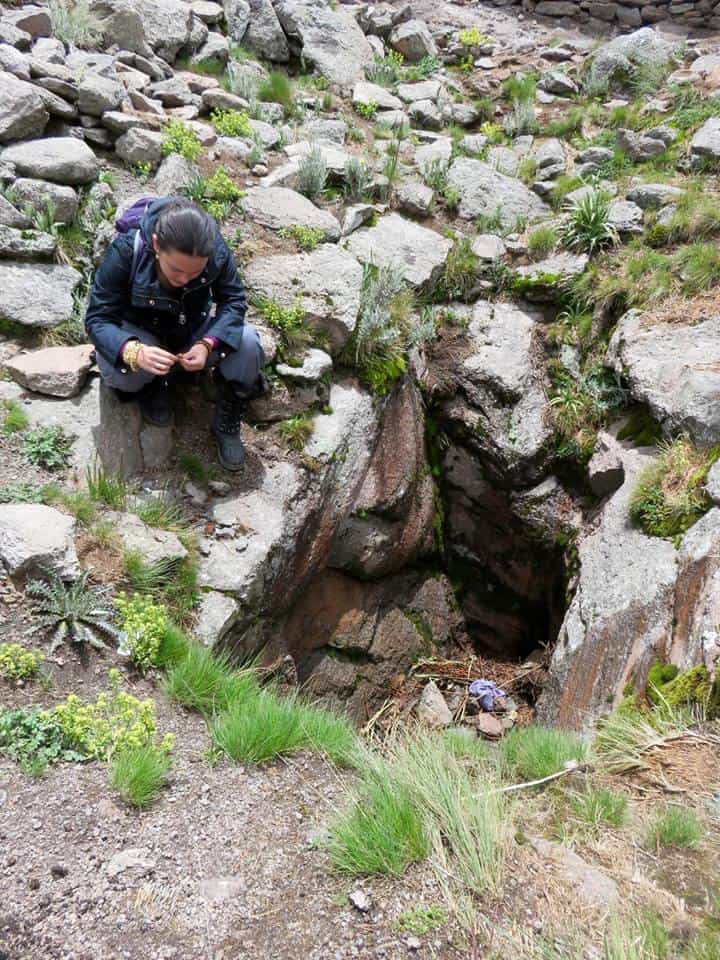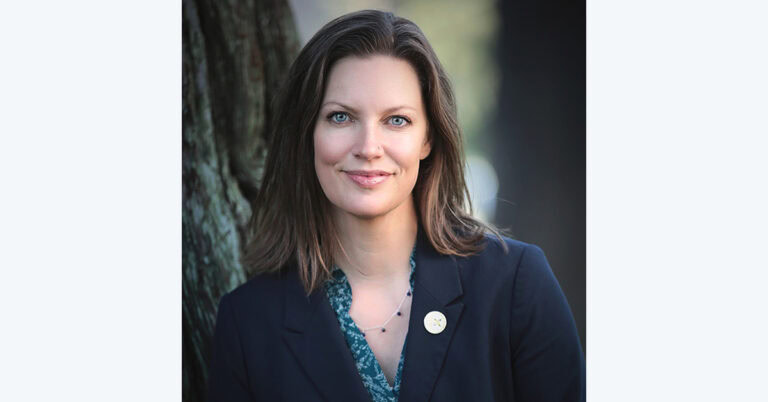Deputy Director
Yes, I Belong Here: How To Recognize The Skills And Value You Bring To The Table
June 23, 2021 | CCST Newsroom, CCST S&T Policy Fellows

Bianca L. Gentil, PhD, is a 2021 CCST Science & Technology Policy Fellow placed in the Governor’s Office of Business and Economic Development (GO-Biz). Bianca’s PhD research focused on identifying the economic characteristics of resilient prehispanic settlements in the face of economic, ecological, and demographic pressures. She earned her PhD in Anthropology from Penn State University and a BA in Anthropology and Religious Studies from CSU Northridge.
“How did I manage to get here? Do I deserve to be here?”
Of course I do. Right?
I’ve arguably had a very successful academic and professional career— I co-owned and ran a small business in my early 20s, later became a proud CSU Northridge grad, and went on to earn my MA and PhD in anthropology at Penn State, where I was the director of my own project down in Central Mexico. After all of this, I was selected to be part of the highly competitive post-doctoral CCST Science & Technology policy fellowship amid a global pandemic.
Yet, it’s never enough, is it? Regardless of personal or professional successes, someone else always ‘does it better.’ Living in a society where status, and achievements define ‘success’, those who do not see themselves as successful can feel pushed to incessantly strive for more. I know I’m not alone on this, as I’ve spoken with numerous academics who felt that their work was never enough or invariably returned to questions of self-doubt. But why? I know I deserve to be here. I’ve worked hard for so long. So why can’t I shake this recurring feeling?
My Fellowship experience so far has helped me see the value I bring through the assets and skills I have as a person with a wide range of experiences, rather than distilling my worth to the number of publications with my name on them or grants I have acquired.
Impostor syndrome is real. It’s described in Scientific American as a “pervasive feeling of self-doubt, insecurity, or fraudulence despite often overwhelming evidence to the contrary.” Impostor syndrome strikes even the most confident among us and often follows moments of achievement. For me, it manifests in a quiet, internalized voice that questions whether I have the qualifications to justify my presence in a room. In these moments, I feel like if I say something, the attention from others will only magnify my insecurities, and they will also question my presence in the room.
Sound familiar? If you’ve felt these similar feelings of self-doubt, let me start by saying that wherever you are, you belong. I do not mean that as an empty compliment. I can back it up.
Let’s break it down. If you did not belong in your current job or position, that would mean at least two things:
- the people around you who selected you for that position are incompetent and do not know what they are doing, and
- if you truly didn’t have what it takes to do the job, then you wouldn’t still have the job.
Clearly, both of those things can’t be true. I know they’re not in my case. CCST has been selecting and placing Fellows for more than 12 years and I’m still here. So rest assured, you belong.
Yes, I do belong here.
That being said, making big career trajectory shifts like I did—going from academia into the policy landscape—can be challenging and further feed impostor syndrome. I went from being the expert in the room to the total newbie. During my Fellowship, I have spent hours deciphering an infinite alphabet soup of acronyms that are the common tongue in public policy. I have dug deep into researching a new subject only to realize how much more background information I need to speak eloquently on the matter. Moments like these can easily send anyone plummeting back into the depths of renewed fears of inadequacy. As a new person to the policy realm, I regularly ask myself what am I bringing to the table?

It’s in these moments that I have to pause, take a breath, and recognize my value. If nothing else, as an academic, I bring a fresh perspective to the policy landscape and though I’m not an expert yet, I have shown that I have the tenacity and grit to work to become an expert. I need to remember that I also have experiences that go beyond my professional life, and those too add value and perspective to my policy work. Over the years, I’ve found that patience and compassion toward yourself can go a long way in countering impostor syndrome. Are you feeling stuck? The APA Science Student Council offers several other useful suggestions for breaking the “impostor cycle,” including reframing the task at hand as an opportunity to learn, taking ownership of your good work, and seeking support when you need it.
My Fellowship experience so far has helped me see the value I bring through the assets and skills I have as a person with a wide range of experiences, rather than distilling my worth to the number of publications with my name on them or grants I have acquired. In policy work, your value is often measured by the way you think and problem solve. Policymaking is proactive but often requires a reactive instinct. Sadly, no matter how many people are working to build long-term, resilient systems, there is usually at least one imminent fire (figurative or very real) that needs to be put out.

As an academic, you also have to think creatively and be proactive, but usually with less immediacy – you develop a hypothesis, design your study or experiment, test your hypothesis, and interpret your results. I have found that the same creative and proactive processes that I used to develop a successful academic study and the flexibility required to implement research are transferable skills for policymaking.

Placed in the Governor’s Office of Business and Economic Development (GO-Biz), I have found myself surrounded by passionate people and supportive mentors dedicated to helping Californians. In this environment, I have been able to implement my analytical and soft skills and find creative ways to apply my expertise. I have found that the diverse range of my skill set and life experiences have been instrumental when tackling projects, and I am not pigeonholed into just one particular niche field. This has been both a liberating and humbling experience. Working with such a vibrant group of fellows this year and such a supportive team at CCST and GO-Biz has made me hungrier than ever to tackle the policy world.
Yes, I do belong here.
About the CCST Science & Technology Policy Fellowship
The CCST Science & Technology Policy Fellows program trains scientific thinkers to be policy-savvy, while helping equip California’s decision makers with science-savvy staff. The program was established in 2009 with funds from the Gordon and Betty Moore Foundation and other generous friends. Discover how our CCST Science Fellows make a difference in California’s policy arena at ccst.us/ccst-science-fellows-program.




